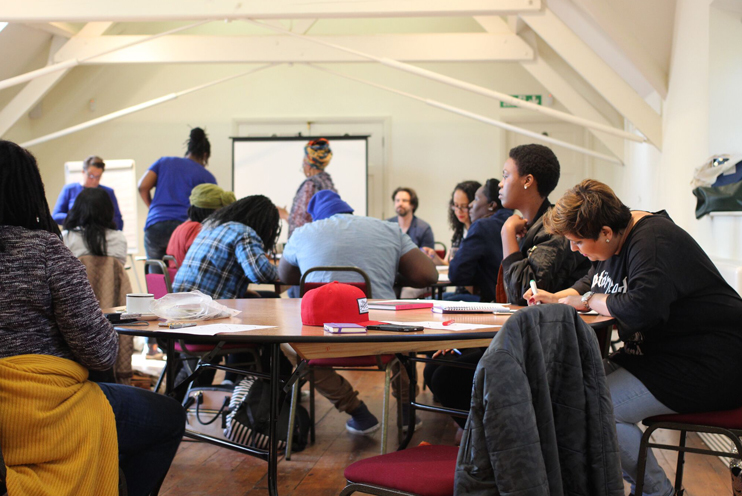ASTONish
Overview:
ASTONish is a programme of cultural leadership and creative entrepreneur training and development aimed at emergent and established artists, musicians and creative entrepreneurs in Aston and Newtown launched in March 2017. The focus was to evaluate the successes and challenges of the programme, in particular some of the complexity and nuance in carrying out this work given the historical context of Aston and Newtown. Our evaluation made recommendations for future programmes and for policy makers who seek to address the current narrative around diversity in the arts and cultural sector. ASTONish was funded by Birmingham City Council and Arts Council England, produced by cultural consultant Lara Ratnaraja and Birmingham Hippodrome in partnership with Birmingham Museums Trust.
Photography by Ines Elsa Dalal.

Methods:
It was decided that the approach for this evaluation would be based on observing events, qualitative interviews and the review of documents (grey literature) relevant to current development in Birmingham. Researchers were able to attend group sessions participating in the programme allowing them to gain an understanding of participants experience meaning participants were more at ease during interview. Additionally, researchers participated and interacted with participants often in informal settings building trust and gaining further insights into the personal perspectives of participants and their reflexivity. The method for collecting data included: Observing a selection of course sessions and associated events; Interviewing ten participants, using semi-structured questions and each interview lasting about an hour (referred to as ‘interviewees 1 to 11’); Interviews with Lara Ratnaraja, Helga Henry and Shakayla Maragh; Collecting social media activities by tracking the hashtag ‘#ASTONish17’, the twitter account @ASTONish_17 and the closed ASTONish Facebook group (referred to as ‘online users’); Reviewing grey literature pertinent to current developments in Birmingham’s cultural and arts policy, specifically as it relates to Newtown and Aston.
Outcome:
The evaluation notes that an important aspect of the programme was to enable participants to discuss and negotiate the notion of ‘diversity’. It provided insights into how cultural leaders negotiate entrepreneurship, leadership and their position within a community. The evaluation also contributed to a project symposium encouraging stakeholders to reflect on the outcomes of ASTONish, and others to engage with a lack of representation and equality in cultural leadership. We noted that the cultural sector is led by cultural leaders who do not on the whole represent the audiences who wish to engage in culture and that a lack of visible diverse leadership has a direct correlation with a lack of cultural participation by diverse communities. Furthermore, the evaluation discussed the barriers faced by those seeking to work in the sector including being aware of the core policy priorities and connecting to influential individuals within the cultural sector.


